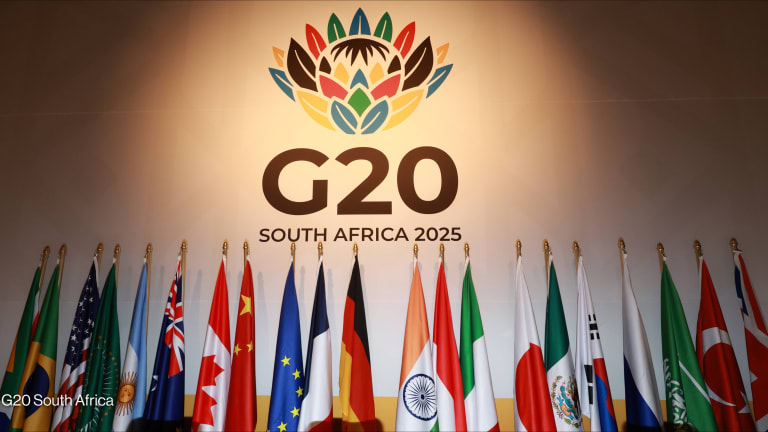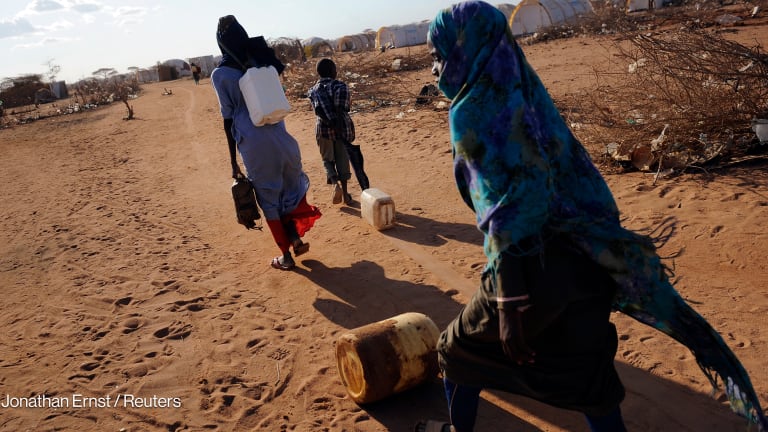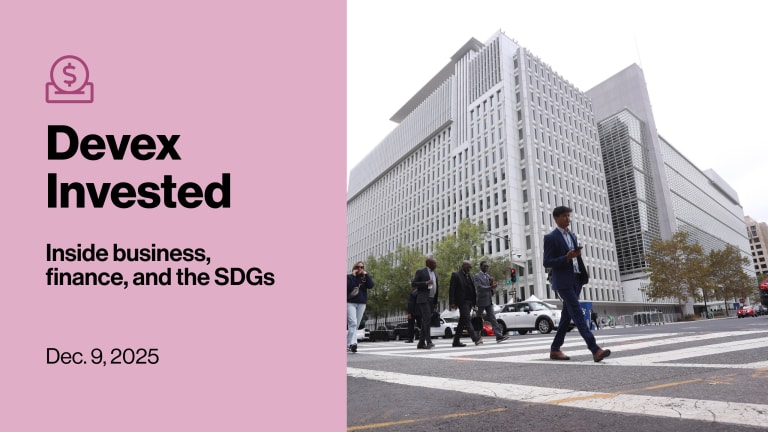
World Bank President David Malpass kicked off a keynote speech on the global economy Wednesday by apologizing in advance for a gloomy presentation of warnings about overlapping crises, such as mounting unsustainable debt in lower-income countries, food insecurity, and energy shortages.
The world is facing the “sharpest slowdown in GDP growth in 80 years,” Malpass said during a Brookings Institution event, in reference to gross domestic product. There is a “massive worsening in global inequality as advanced economies absorb the limited supplies of global capital and energy,” he added. “I wish I had a brighter image of where the world is going.”
The head of the anti-poverty lender said the problem of unsustainable debt is “tightly connected” to the food crisis, since governments lack the fiscal space to alleviate suffering as prices remain elevated.
“Global food insecurity is worsening,” he warned.
So far, the G-20 group of industrial and emerging-market nations has failed to come up with meaningful debt relief. “We are left with giant amounts of unsustainable debt in developing countries without a methodology to reduce that debt,” he said, adding that the world’s lowest-income nations were in hock and paying dues to “rich creditors.”
Sign up for Devex Invested
The must-read weekly newsletter that keeps you up to date with news about business, finance, and the SDGs.
While Kristalina Georgieva, the managing director at the International Monetary Fund, had raised hopes in her talk at the Devex World event in Washington this week about a “reenergized” environment for debt relief, noting upcoming meetings of creditor committees for Chad, Zambia, and Ethiopia — the only three nations that had turned to the G-20’s so-called common framework on debt relief — Malpass poured a dose of realism on the situation.
Chad’s committee had already met early Wednesday morning and failed to make progress, he said. Talks on Zambia may still have a chance, but they have been ongoing for a year and a half, he noted.
Zambia was the first African country to default in the COVID-19 era, and the World Bank has warned that the coming months may see a dozen defaults from other nations, with Sri Lanka’s headline-grabbing crisis a warning sign.
Representatives of the world’s top economies meet this week in the hope of drawing up a joint communiqué, Malpass said, cautioning that it is “very difficult for G-20 members to find consensus on any of these major topics.”
In a blog post Wednesday, Georgieva echoed Malpass’ overall sentiment on the risks to the global economy and said IMF will downgrade its global growth projections in its next outlook update. “It is going to be a tough 2022—and possibly an even tougher 2023, with increased risk of recession,” she said, urging the G-20 to take “decisive action.” In particular, she called for global cooperation to help African countries frozen out of financial markets.
Malpass warned that rich countries are making a bad situation worse through trade restrictions and stockpiling — such as by hoarding energy, which is hurting fertilizer production and access to food for the poor.
He further chastised global monetary and fiscal policymakers for creating a framework that was drawing capital away from areas of the world most in need of financing while pulling money into overcapitalized sectors of advanced economies. This framework “favors those with high net worth at the expense of broad-based growth,” he said.
Malpass was also critical of the United States, Europe, and China for not taking steps to increase production and ease global inflation on the supply side. He warned that if interest-rate hikes, which hit the demand side, become the primary means for the richest countries to fight rising prices, policymakers risk “deepening inequality.”
When U.S. Federal Reserve governors and other policymakers raise interest rates, they increase the cost of borrowing money, which in turn suppresses spending and, according to conventional theory, reduces inflation. It’s a balancing act that aims to cool inflation without causing damage.
Julia Coronado, a professor of finance at The University of Texas at Austin, said during the Brookings event that monetary policy was a vital part of the solution, but she agreed that “we need to focus with as much intensity on the supply side of the economy.”
Governments should help stabilize food and energy markets, along with broad commodity supplies, including those needed for a transition to a green economy, she said.
“These are not things that the private sector will naturally solve on its own,” Coronado added.









